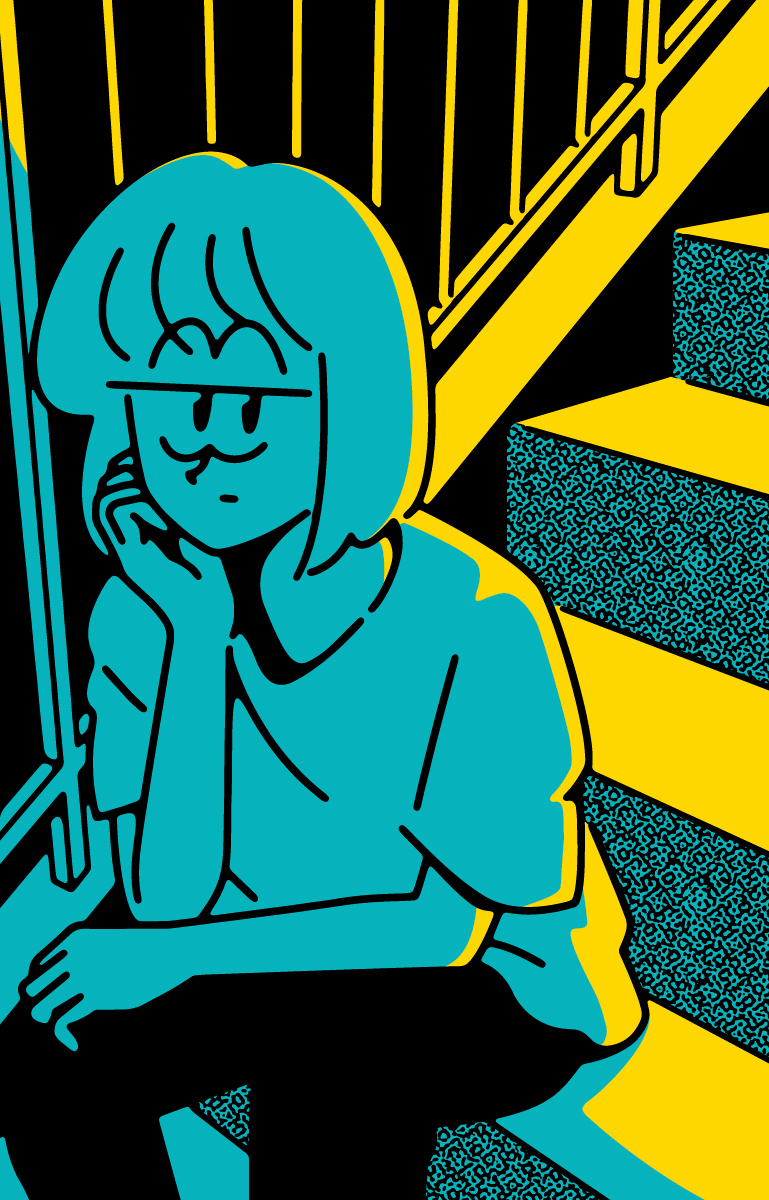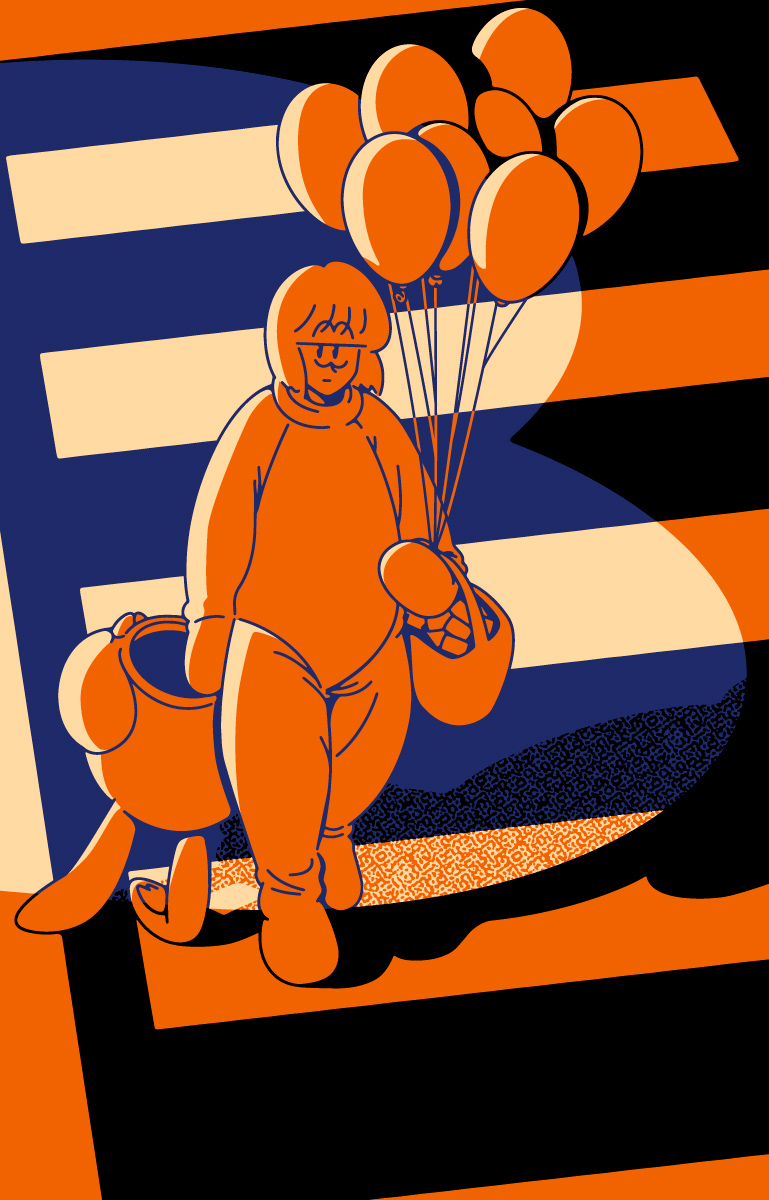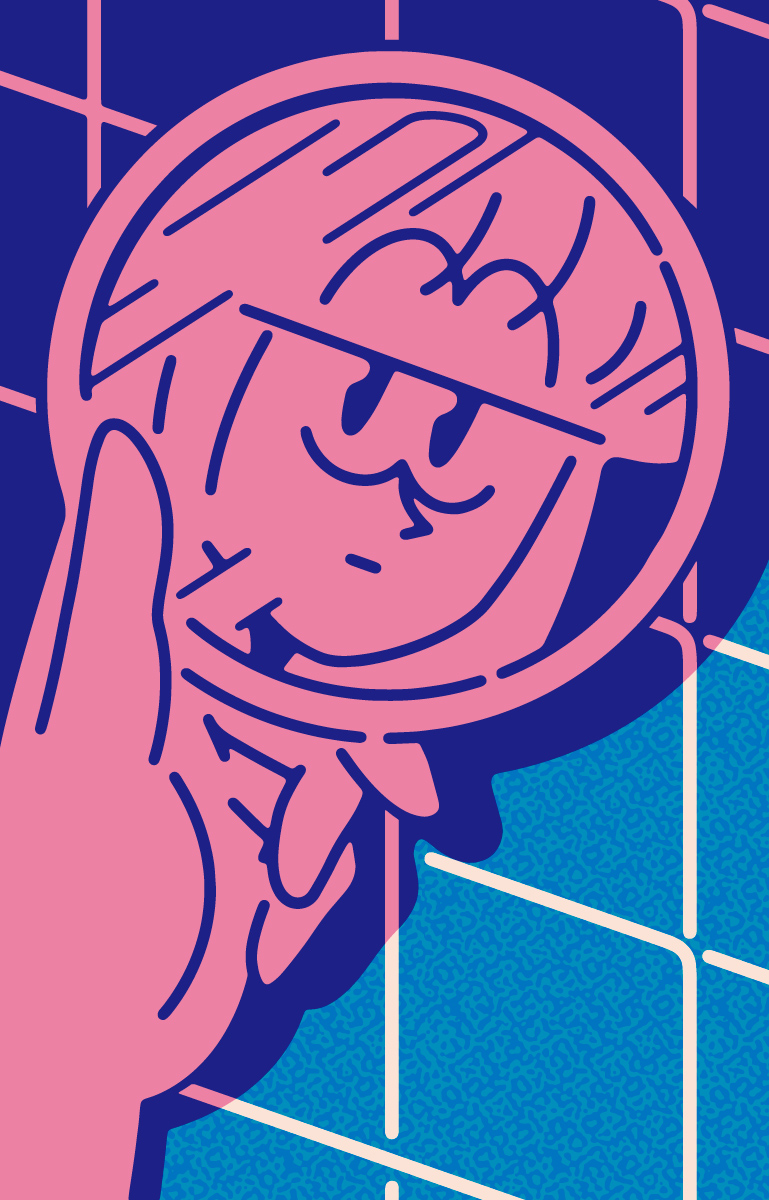A pop icon with a "sullen look"
The gaze of the artist seems to look at the viewer coldly, but also as if he is entrusting his heart to the viewer. The character with the "sullen gaze" depicted as a way of expressing individuality in comics and anime, and the story is felt in the piece, and each viewer can feel their own. Machida Takeru depicts sequences that are superimposed on the life of the protagonist in a pop style.
The 1970s saw the economic downturn caused by the oil crisis and social problems such as pollution come to light. The 1980s saw a backlash, but also a sense of expectation for the next decade, which would be bright and blossoming, and at the same time, a sense of resignation lingered beneath it. As if to overlap with the atmosphere and culture of the times, the exhibition "POP ALONE" uses pop art to accompany helpless individuals in a difficult society. A total of 20 works by pop icons gazing intently at us will be on display, and will also be available for sale as giclee (※1) artworks.
Takeru Machida was born in Shizuoka Prefecture in 1986. He currently lives and works in Nagoya, and is involved in a wide range of activities, including corporate collaborations as a graphic designer. His interest in art began in America, where he lived until he was 10 years old.
"When I went to America as a child, I couldn't speak any English and couldn't understand the lessons, so I would often doodle in my notebooks. My classmates praised my drawings a lot, and I realized that even without words, you can communicate through pictures." This experience left a strong impression on him, and he learned that visual expression opens the door to perception.
When I lived in the United States, I often went to art galleries and museums with my parents. There, I happened to see a series of Andy Warhol paintings and was "shocked." I was completely immersed in the light of pop art, a style of expression that was clearly different from the traditional Western paintings I had seen up until then. From there, my creative sensibility was nurtured by pop culture, including manga, anime, movies, record jackets, and street fashion.
On the other hand, due to the frequent changes in his life, including returning to Japan from the United States and later experiencing his parents' divorce, he began to have a cold view of others, including his family, and society.
"When I started living in Japan as a returnee, I felt the differences in culture and community. I observed not only the events happening in the world but also those happening around me from a distance, as if watching a movie. I felt like I couldn't fit in anywhere and was seized by a sense of emptiness."
The distance between self-care and tolerance of others
While he believes he was "saved" by pop culture, his cynicism grows as a kind of self-defense against absurdity. This is connected to his social consciousness after the September 11 attacks when he was 15 years old. The once familiar city of New York was covered in rubble and dust, and he realized that the events of the world that he had once thought were all fiction were connected to his own life. Two incompatible consciousnesses came to his mind: one looking down on the world as a third party, and the other witnessing it as a person involved.
"Everything in the world cannot be understood by looking at it from only one side, and as times change dramatically, all we can do is flexibly change our perspective and position, and then return to ourselves. This is the only continuity," he says. In pop culture, a blank stare is often interpreted as a skeptical or cynical attitude. Machida's gaze can be said to measure a certain degree of "nearby" distance.
The work only depicts one character. However, the effective use of light shining in from off-screen makes us imagine the presence of others, showing that even within a single person there is an immeasurable distance between their inner and outer selves. It also suggests that the work finds hope in the sense of distance that allows us to respect others while also being considerate of ourselves, as it reflects on connections and solidarity.
Pop lives happily in a complicated world
In a diverse society, it is difficult to coexist with others who have values that are difficult to deal with, and it can be hard when misunderstandings breed more misunderstandings. It can also be hard to avoid being swept away by public opinion that is just unnatural. There is something realistic about the light-heartedness of the characters, who do not just stand up to others, but sometimes run away and then come back when the time is right.
Machida has set "pop and ephemeral" as the theme of his artistic activities, and has said that as an individual he "feels depressed, but he wants to live pop," and he is attempting to connect with society through lightness = pop.
We all have different likes and strengths, and we are all biased. Conflict will never disappear from the world, but a society where people can live in the way that suits them, without having their values imposed upon them by anyone. Machida's stern gaze is an attempt to look at a society that is deep because of its complexity, and fresh because of its variety, and the glorious people who come and go there.
*1 Giclee: French for "to spray color onto something." Also written as giclee. A technique for reproducing digital data of the original artwork with high resolution and a wide color gamut on the highest quality materials, such as high-quality canvas, printing paper, high-quality photo paper, and washi paper. It is also characterized by its high preservation properties, and has been attracting attention in recent years as the artist himself supervises the work and works together with a printing technician to complete it into a work of art.








